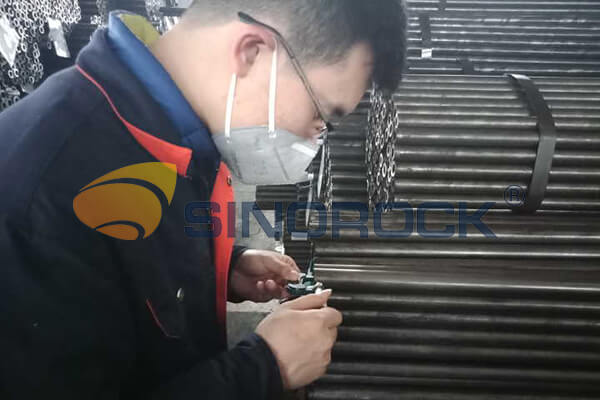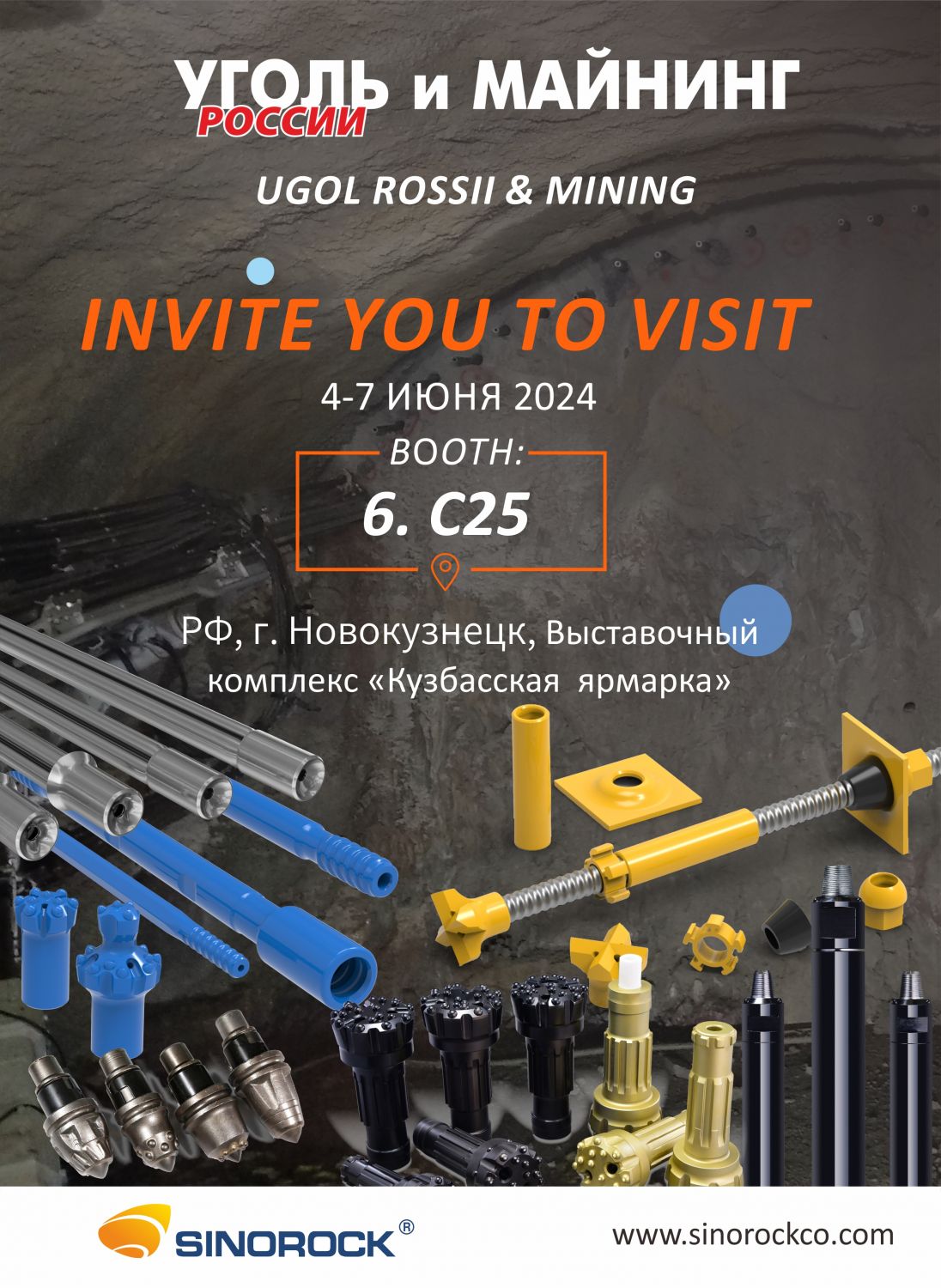Application of Self Drilling Anchor Bolt in Deep Foundation Pit Supporting
Time:2025-02-19From:sinorock View:
As cities expand vertically, the demand for underground spaces, such as parking lots, utility tunnels, and basements, has grown exponentially. With this increasing need for deep foundation pits, challenges in excavation and support systems also arise. Traditional methods, although effective in certain situations, often face limitations when working with complex soil conditions, especially in soft, sandy, or water-saturated soils. The rising need for efficient, safe, and adaptable construction techniques has led to the growing application of self-drilling anchor bolts in deep foundation pit support systems. This article explores the advantages and applications of these rock bolts, particularly in the context of deep foundation pits, shedding light on why they have become a critical solution in modern urban construction projects.Understanding Deep Foundation Pits and the Challenges Involved
Before diving into the application of self-drilling anchor bolts, it is essential to understand what deep foundation pits are and the typical challenges associated with their construction.
What Are Deep Foundation Pits?
A deep foundation pit is an excavated area in the ground, typically more than 10 meters deep, that serves as the base for constructing large structures such as high-rise buildings, tunnels, or underground infrastructure. These pits often require strong and reliable support systems to maintain the safety and stability of the surrounding soil and structures. As excavation goes deeper, the complexity of supporting the pit increases due to the varying soil properties, water content, and the pressure exerted by the surrounding earth.
Key Challenges in Deep Foundation Pit Construction
1. Soil Instability: One of the primary concerns in deep foundation pit excavation is soil instability. Soft and loose soils, common in urban areas, are prone to collapse or shrinkage during the excavation process. This can result in dangerous conditions such as cave-ins or soil shifts that compromise the safety of workers and surrounding structures.
2. Water Infiltration: Many foundation pits are located below the water table, making water seepage a critical issue. If not properly managed, water infiltration can undermine the foundation's integrity and complicate the excavation process, leading to delays and increased costs.
3. Limited Space for Conventional Methods: As cities become denser, the space available for construction often shrinks. Traditional soil nailing and shoring techniques require substantial area for both installation and operation. This limitation makes it challenging to implement these methods in highly confined urban environments.
4. Time and Cost Constraints: Construction schedules in urban projects are often tight. Any delays in foundation pit support installation can cascade into other areas of the project, leading to higher overall costs and longer project timelines.
The Traditional Soil Nailing Method: Shortcomings and Limitations
Soil nailing is a commonly used technique for stabilizing slopes and deep excavation pits. However, when dealing with soft, sandy, or waterlogged soils, the traditional soil nailing method often faces significant challenges.
1. Soil Instability During Installation
In traditional soil nailing, workers drill holes into the ground and insert steel bars, followed by the injection of grout. While effective in certain conditions, this process often disrupts loose or unstable soil. Soft soils can collapse or shrink around the holes during the drilling phase, causing loss of material and increased instability.
2. Time-Consuming and Labor-Intensive
The traditional approach requires multiple steps: drilling, inserting reinforcement bars, grouting, and final stabilization. Each of these steps is time-consuming and labor-intensive. This not only delays the construction timeline but also increases the project's labor and material costs.
3. Limited Adaptability to Soil Variability
Traditional methods of soil nailing are often not adaptable to varying soil conditions. In projects where soil conditions shift significantly across the excavation site, the effectiveness of these methods can be compromised, requiring additional reinforcements or modifications that drive up costs.
Self-Drilling Anchor Bolts: Efficiency Improvement Expert in Foundation Pit Support
Self-drilling anchor bolts have emerged as an innovative solution to address the shortcomings of traditional soil nailing methods. These bolts are specifically designed to provide efficient, reliable, and cost-effective solutions for foundation pit stabilization, offering several distinct advantages in challenging soil conditions.
.jpg)
1. Simultaneous Drilling and Grouting
Unlike traditional soil nailing, self drilling anchor bolts integrate both drilling and grouting processes into a single step. The anchor bolts have a hollow design that allows for the injection of cement grout while the bolt is being drilled into the ground. This simultaneous process not only improves efficiency but also ensures that the anchor bolt is securely anchored to the soil during installation. The grout solidifies around the bolt, forming a stable bond with the surrounding soil that enhances stability and reduces the risk of collapse.
2. Improved Stability and Load-Bearing Capacity
Self-drilling anchor bolts contribute significantly to the stabilization of deep foundation pits. By anchoring securely into the soil and filling the surrounding voids with grout, SDABs improve the load-bearing capacity of the foundation pit. This increased stability is particularly important in areas with soft or loose soils, where traditional methods may fail to provide sufficient support. The grout helps bind the soil particles together, preventing soil collapse, shrinkage, and seepage.
3. Reduced Construction Time and Costs
One of the key advantages of self drilling anchor bolts is their ability to streamline the installation process. By combining drilling and grouting into one operation, SDA bolts eliminate the need for multiple steps and reduce the overall construction time. This efficiency not only shortens project timelines but also helps to minimize labor costs and other associated expenses. The faster installation also reduces the risk of delays caused by weather or other external factors, making SDA bolts an ideal solution for tight project schedules.
4. Adaptability to Varying Soil Conditions
Self-drilling anchor bolts are highly adaptable and can be customized to suit different soil types and conditions. Whether dealing with loose sandy soils, clay, or more solid rock formations, self drilling anchor bolts can be designed to meet specific project needs. This versatility makes them an invaluable tool for deep foundation pit support in areas with complex soil profiles.
Applications of Self Drilling Anchor Bolts
1. Urban High-Rise Projects
In urban construction projects where space is limited, deep foundation pits are often necessary to support the structure's foundation. For example, in high-rise buildings, self drilling anchor bolts have been used to stabilize deep excavations for parking garages, basement facilities, and utility tunnels. Their ability to perform in challenging soil conditions and compact urban spaces has made them a preferred choice for city developers.
2. Bridge and Infrastructure Construction
In bridge construction, deep foundation pits are essential for providing stable support in riverbeds or other challenging environments. Self drilling anchor bolts are frequently used in these projects due to their ability to support large, heavy structures and withstand water infiltration. The combination of speed and strength makes SDA bolts an effective solution for both urban and rural infrastructure projects.
Conclusion: The Future of Deep Foundation Pit Support
The application of self-drilling anchor bolts in deep foundation pit support is reshaping the landscape of urban construction. By addressing the limitations of traditional soil nailing methods, SDA bolts provide a more efficient, reliable, and cost-effective solution for stabilizing deep foundation pits in various soil conditions. With their rapid installation, enhanced stability, and adaptability, SDA bolts are poised to become an integral part of modern construction techniques, supporting the continued growth of cities and infrastructure worldwide.
As the construction industry increasingly turns to more sustainable and innovative solutions, self drilling anchor bolts will play a key role in meeting the demands of future projects. By embracing this technology, developers and contractors can ensure the long-term stability, safety, and success of their deep foundation pit projects.
Sinorock, a leader in the field of self-drilling anchor bolts, has extensive experience in providing top-quality solutions for deep foundation pit support. For more information about our products or to discuss your specific project needs, feel free to contact us at sinorock@sinorockco.com.
latest news
-

- Application of Self Drilling Anchor Bolt in Deep Foundation Pit Supporting
- Time:2025-02-19From:This Site
- In recent years, urban buildings are developing toward high-rise, and the application of underground space in construction is more widely, which brings tremendous pressure to the maintenance of deep foundation pit. In this case, the self drilling anchor bolt can be used as supporting tool.
- View details
-
.jpg)
- Micropiles vs. Soil Nailing: A Comparative Analysis
- Time:2025-02-14From:This Site
- Explore the key differences between micropiles and soil nailing, comparing their applications, advantages, limitations, and suitability for various soil conditions.
- View details
-
.jpg)
- How to Design Soil Nailing Walls? Common Arrangements of Soil Nails.
- Time:2025-02-12From:This Site
- Soil nailing involves precise soil nails spacing for effective slope stabilization. Proper design and arrangement ensure structural integrity in soil nailing walls.
- View details
-

- Quality Control: the Vital Factor of A SDA Bolt Factory
- Time:2025-01-09From:This Site
- Sinorock’s comprehensive quality control system, from supplier management to outgoing inspections, ensuring the highest standards for self-drilling anchor bolts in construction.
- View details
-
.png)
- International Women's Day with Strawberry-picking
- Time:2024-03-09From:This Site
- Marked the annual observance of International Women's Day, and to commemorate this significant event, Sinorock organized a special strawberry-picking event exclusively for its female employees.
- View details
-

- Celebrate the 74th anniversary of the founding of the People's Republic of China
- Time:2023-10-01From:This Site
- On October 1st every year, we observe the annual National Day, commemorating the birth of our beloved motherland.
- View details
-
.jpg)
- SINOROCK to Attend EXPOMINA PERÚ 2024 in Lima, Peru
- Time:2024-08-10From:This Site
- Sinorock to Attend EXPOMINA PERÚ 2024 in Lima, Peru
- View details
-
.jpg)
- SINOROCK to Participate in MINING AND METALS CENTRAL ASIA 2024
- Time:2024-08-08From:This Site
- SINOROCK to Participate in MINING AND METALS CENTRAL ASIA 2024
- View details
-

- SINOROCK Gears Up for UGOL ROSSII & MINING 2024 with Custom Mining Solutions
- Time:2024-05-15From:This Site
- SINOROCK is thrilled to announce its participation in the highly anticipated 32nd International Trade Fair for Mining Technology, UGOL ROSSII & MINING 2024. The event will take place at the Exhibition complex "Kuzbass Fair" in Novokuznetsk, Kemerovo region - Kuzbass, Russia, from June 4th to 7th, 2024.
- View details
 Download
Download 


